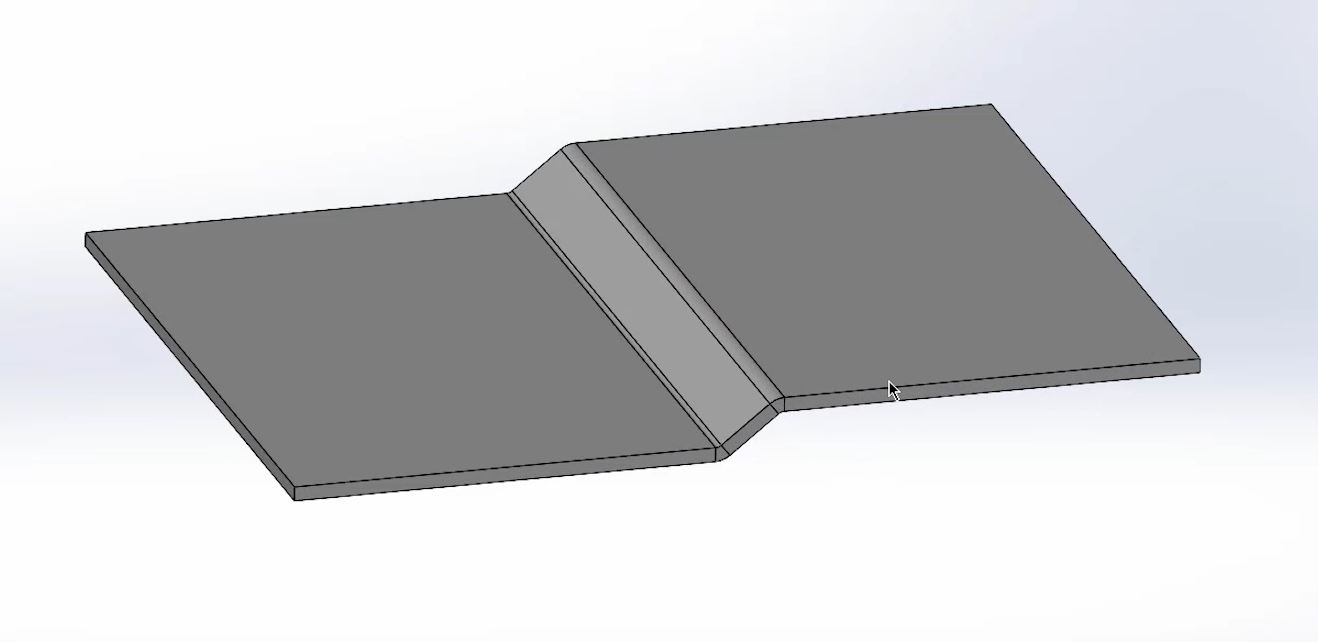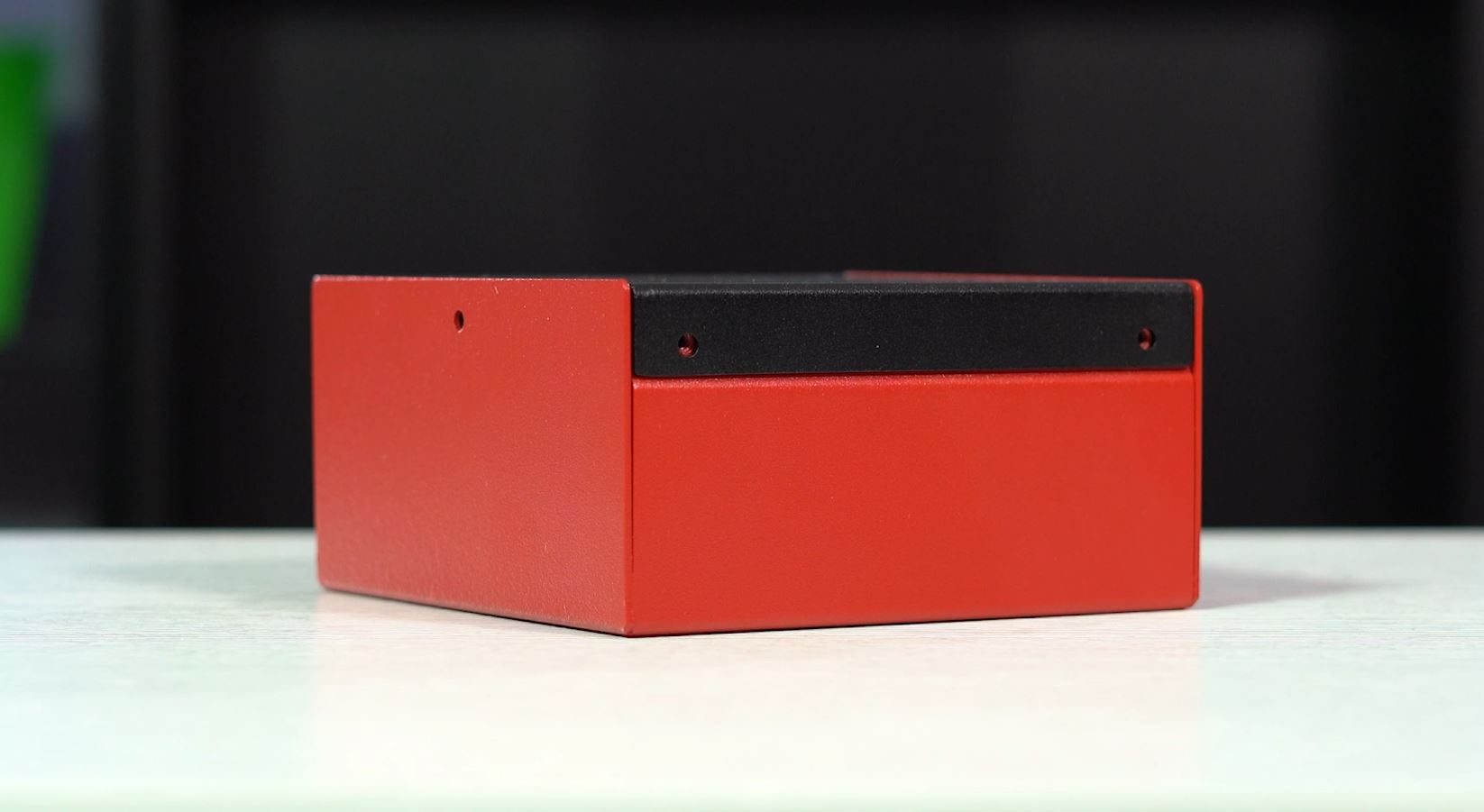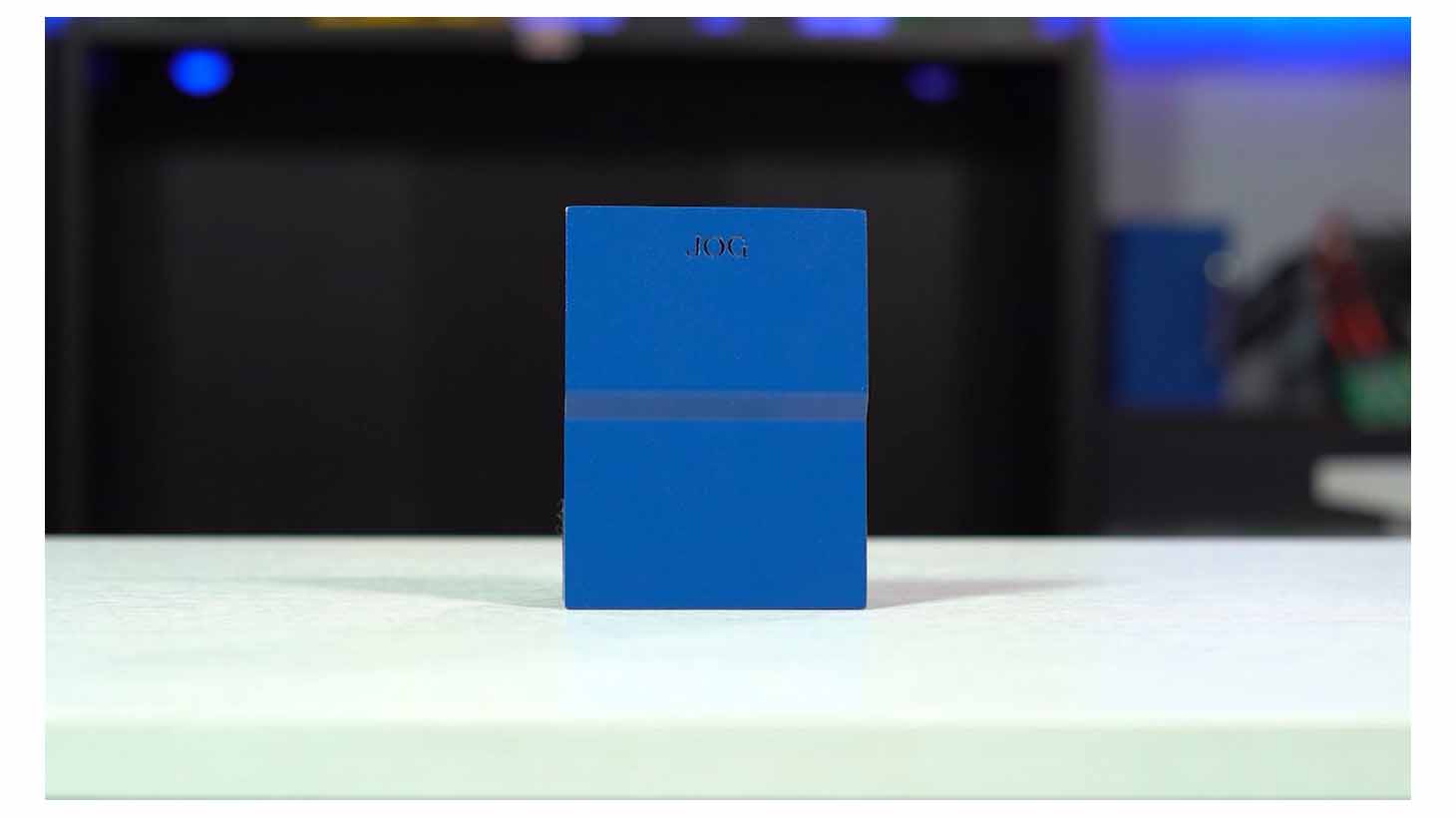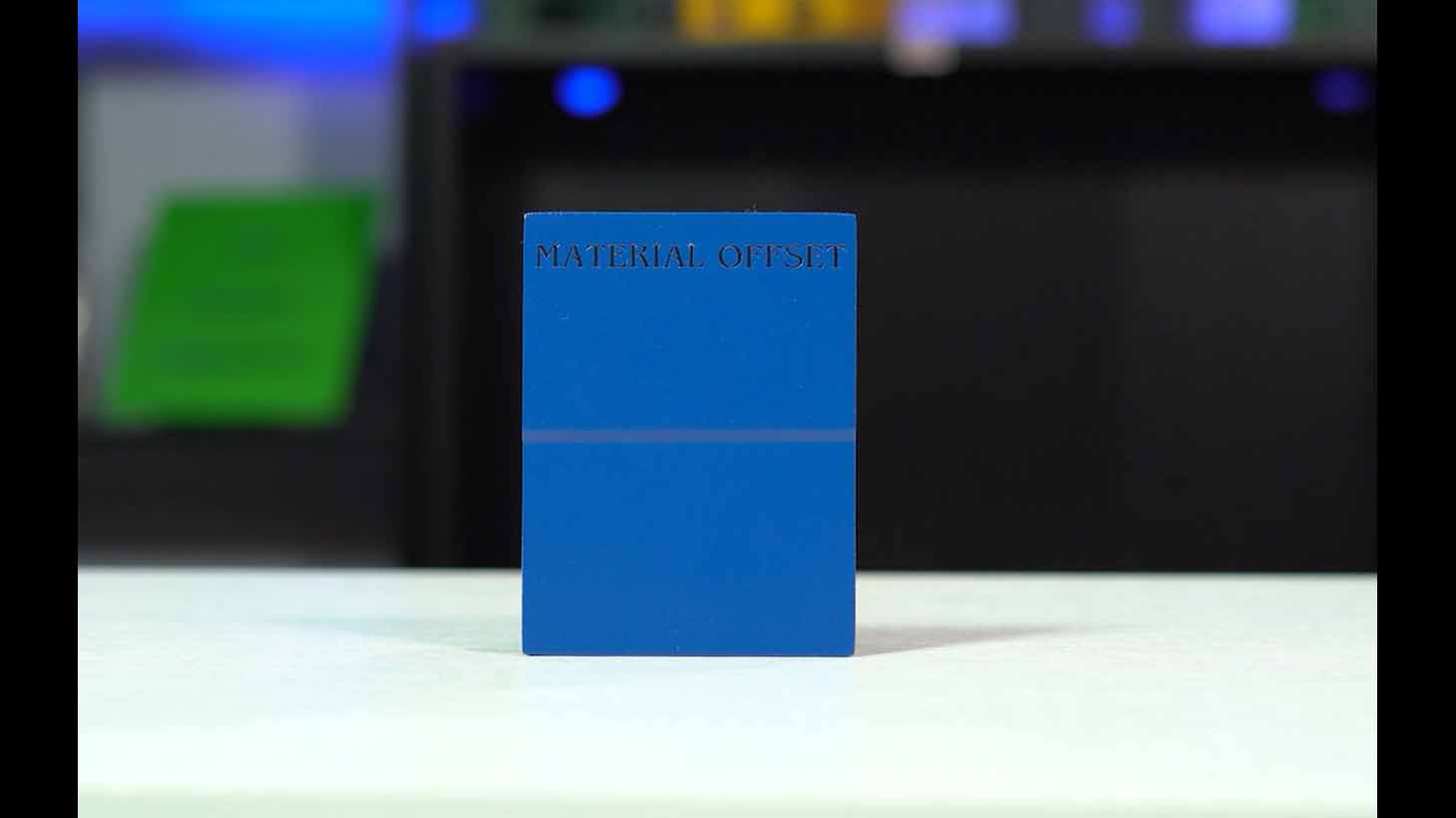Jog Bends
While jog bends and material offset bends achieve a similar result, the means by which each bend is created is different.
Material offset bends are preformed in a single operation. The tool used for material offset bends has an
imprint that will form the metal with a singular offset. These will typically raise your bend up by the
material thickness.
On the other hand, jog bends are preformed in two separate operations. Jog bends are a more manual method of
achieving parallel distances, and enable larger distances than material offset bends. Jog bends offer
greater flexibility as you are not limited by the single tool and operation.
These bends keep the part on either side parallel to each other, in order to provide an offset surface.
These can be used to allow space for a cover to sit on top of an enclosure while remaining flush with the
outside.
Jog bends and material offset bends are often used for adding clearance to a design, such as adding an
offset lid that is tucked inside your design.
Materials
We can create jog bends and material offset bends on many types of sheet metal, including aluminum, cold rolled steel, galvanneal and stainless steel.
Constraints
It is important to ensure enough clearance is between your offsetting flanges and the inside of the cover.
We recommend staying within the range of 0.010” to 0.020” for your clearance.
Finishes
Parts with jog bends or material offset bends can be treated with any of our finishes, so long as the part meets the minimum and maximum dimensions for the particular finish you choose.





